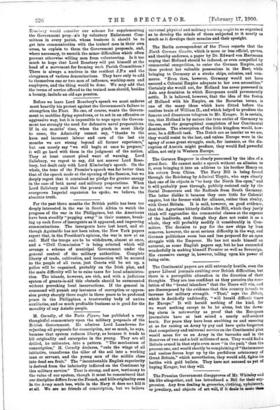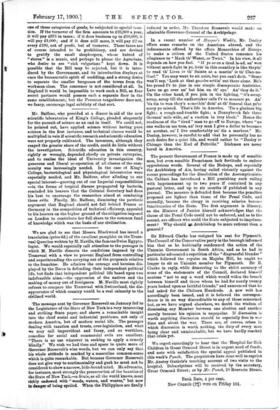The Prussian Government disapproves of Mr. Whiteley and his like
altogether, and has introduced a Bill for their sup- pression. Any firm dealing in groceries, clothing upholstery, or jewellery, and objects of art will, if it deals in more than one of those categories of goods, be subjected to special taxa- tion. If the turnover of the firm amounts to £25,000 a year, it will pay £375 in taxes ; if it does business up to £50,000, it will pay 21,000; and if it does still more, it will pay £2 on every £m not of profit, but of turnover. These taxes are of course intended to be prohibitory, and are devised to gratify the small shopkeepers, whose hatred of " stores" is a mania, and perhaps to please the Agrarians, who desire to see "rich vulgarians" kept down. It is possible that the Bill may be rejected, but it is intro- duced by the Government, and its introduction displays at once the bureaucratic spirit of meddling, and a strong desire to separate the smaller burgesses of the towns from the workman class. The consumer is not considered at all. In England it would be impossible to work such a Bill, as four secret partners would possess each a separate floor in the same establishment; but the Prussian taxgatherer does not, we fancy, encourage legal subtlety of that sort.







































 Previous page
Previous page